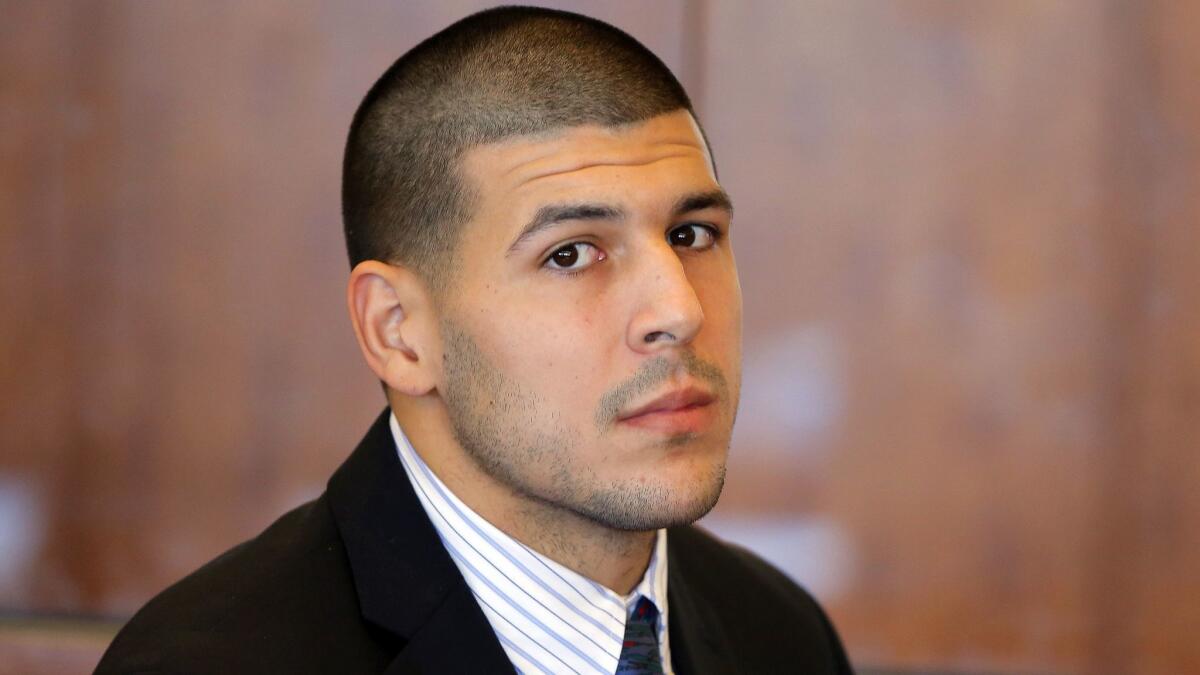Aaron Hernandez’s murder conviction reinstated by Massachusetts court

- Share via
Aaron Hernandez’s murder conviction was reinstated Wednesday in a sweeping ruling from Massachusetts’ highest court that does away with the legal principle that made the former NFL star innocent in the eyes of the law after he killed himself in prison.
The Supreme Judicial Court unanimously found that the legal rule that erased Hernandez’s conviction is “outdated and no longer consonant with the circumstances of contemporary life.” It ordered that Hernandez’s conviction be restored and that the practice be abolished for future cases. The ruling does not affect past cases.
Hernandez was convicted in 2015 of killing semi-professional football player Odin Lloyd. Two years later, the 27-year-old former New England Patriots tight end killed himself in his prison cell days after being acquitted of most charges in a separate double-murder case.
A judge threw out Hernandez’s conviction that year, citing the legal principle that holds that a defendant convicted at trial who dies before an appeal is heard should no longer be considered guilty in the eyes of the law, thereby returning the case to its pretrial status. The prosecution then appealed, seeking to have the conviction reinstated.
Under the doctrine, rooted in centuries of English law, a conviction should not be considered final until an appeal can determine whether mistakes were made that deprived the defendant of a fair trial, legal experts say.
How states handle cases such as Hernandez’s varies widely. Some, like Massachusetts, toss the convictions, while other states dismiss the defendant’s appeal and the conviction stands. Others allow appellate courts to consider a dead defendant’s case, prosecutors said.
The district attorney whose office prosecuted Hernandez’s case applauded the court’s decision.
Sign up for our daily sports newsletter »
“We are pleased justice is served in this case, the antiquated practice of vacating a valid conviction is being eliminated and the victim’s family can get the closure they deserve,” Bristol County Dist. Atty. Thomas M. Quinn III said in a tweet.
Hernandez’s attorney had previously argued the legal doctrine should remain intact, saying juries make mistakes. An email requesting comment on the court’s decision was sent to his attorney Wednesday.
More to Read
Go beyond the scoreboard
Get the latest on L.A.'s teams in the daily Sports Report newsletter.
You may occasionally receive promotional content from the Los Angeles Times.









